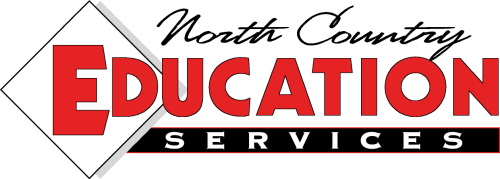A project of
_________________________________________________________
Resources for Educators | Professional Development
_________________________________________________________
A collaborative initiative of White Mountain Science Inc. and North Country Education Services, CS North is supporting North Country schools in planning for comprehensive and strategic implementation of computer science in grades K through 12.
The overarching goal is for the region’s schools to be leaders in developing STEM-capable graduates as a pipeline for an innovation economy in the North Country.
+ Focus #1. Deepening the understanding of what CS is and looks like in the elementary classroom.
Computer science (CS) teaches problem-solving techniques that draw heavily on:
- Computational thinking
- Logic and sequencing
- Trial and error (debugging and retesting)
CS is much more than (>) coding and using computers!
Computer science also promotes:
- Persistence
- Confidence
- Tolerance for ambiguity
Short-term outcomes: Participating elementary schools are developing implementations plan for CS integration in K-5/6 and well-positioned to meet the requirements of House Bill 1674 regarding digital literacy.
Long-term outcomes:
- Early grade teachers make curricular connections for students by explicitly using language like “use an algorithm”, “look for the pattern,” and “what rules can we apply?” in all content areas
- CS skills are naturally integrated/transferred into non-CS content areas and plugged and unplugged lessons
- CS skill development begins in K and transitions seamlessly throughout a students’ learning pathway.
+ Focus #2. Promoting CS as a workforce development strategy.
Aimed at middle and high school educators, this part of the project will include professional development sessions on
Leveraging Programming, the Web, and CS Principles as a Local Workforce Development Strategy
- Opportunities of CS as a workforce development strategy, who is hiring and the demand for CS skills
- The habits of mind for CS
- Helping students understand to difference between being users of the web versus masters of the web
+ Focus #3. Jazzing students up about CS!
Code-a-Thon, Hack-a-thon, Codefest, Technovation Challenge, Computing Olympiad… the exact title is to be determined, but this component will be a regional CS event for students. There will be a hands-on, minds-on competitive (or perhaps collaborative) challenge plus a “Programming as Performance” keynote speaker to deliver a live demonstration of programming.



